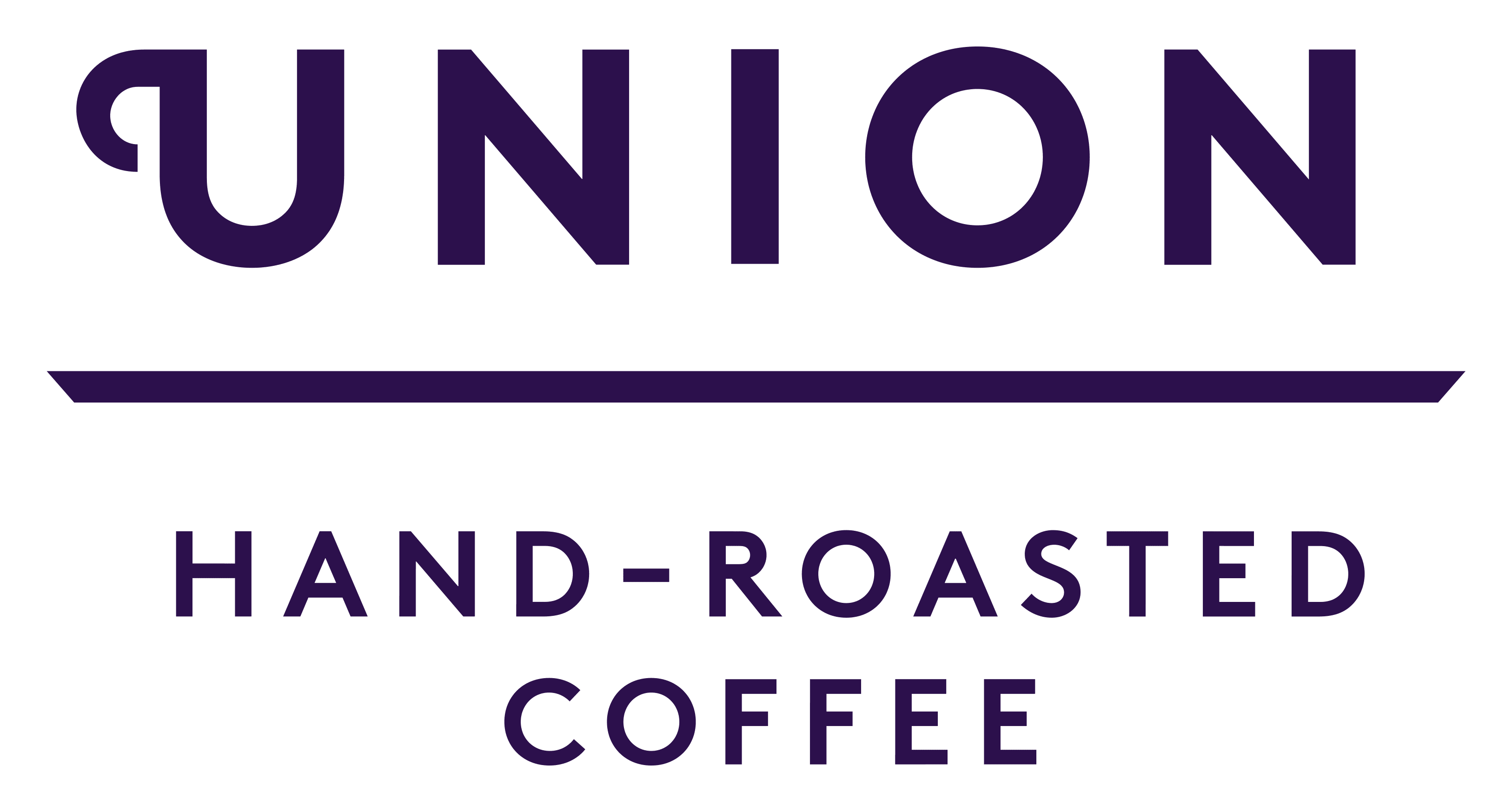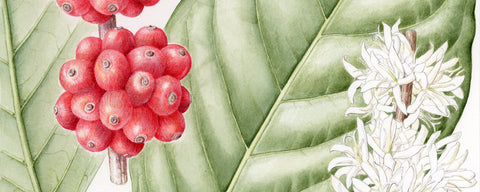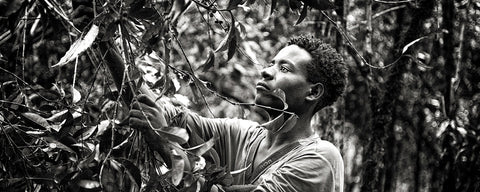First Published - March 22, 2017 (By Pascale - Coffee Lover, Traveller and Mother)
At Union, we source a lot of coffee (around 75% of all our green coffee) from smallholders coffee farmers, when we source from smallholders we source through cooperatives.
Why is this?
An average coffee tree yields around 4 kilo of coffee cherries, equivalent to around 500 grams of roasted beans. In Rwanda, a farmer has on average 400 trees, meaning a single farmer produces 200 kilos of roasted beans. On average Britons drink 1.7 kilos of coffee a year, and this is one of the lowest amounts in Europe. For a single smallholder farmer direct accesses to buyers such as Union, is not impossible but very difficult. One or two bags of unroasted beans, also called a ‘microlot’ or in this case a nano-lot, wouldn’t satisfy much of that demand.
In order for smallholders to export their coffee, they need to come and work together, – this is the essence of a cooperative working jointly to a common goal.
Recently, we celebrated 10 years of RWASHOSCCO, – The Rwandan Small Holder Specialty Coffee Company. RWASHOSCCO, is an enterprise, the company’s shareholders are the member cooperatives themselves, who pay an annual fee of their gross sales. The company does not buy coffee from members to sell it, but connects cooperative members to foreign roasters or coffee companies that seek long-term partnerships with producers. Over the years, it has led to an improvement in coffee quality and price received on the producer’s side. The company assists and takes care of the milling, export documents and shipping. RWASHOSCCO also assists its members in coffee certification, writing of business plans and loan applications.
RWASHOSCCO is an example of how farmers can consolidate their own businesses. They even locally roast and sell coffee, sold under the ‘Café Maraba’ brand.
|
Angelique Karekezi (on the right), general manager of Rawaschossco shows a strong commitment to quality. Like her, we think it’s the way forward as quality premiums make a big difference in the lives of the farmers.
|
Whilst at the celebration of Rwashoscco’s ten years anniversary, besides the party, there were some cupping sessions. Followed by an auction. When Steven tasted the lot from Cyarumbo, he immediately knew he had to source some of this coffee for you to enjoy.
Cyarumbo, was Maraba’s first coffee washing station constructed in 2002. With the success of Maraba, more CWS were constructed: Kabuye, Sovu and Kibingo. At the washing stations, farmers deliver coffee cherries carefully harvested, ensuring the best quality. At the coffee washing station. the cherries are sorted again, using flotation tanks to separate defective cherries to ensure consistency and quality across all exported beans. Next, the cherries are de-pulped and the beans are transferred to fermentation tanks to undergo a dry fermentation process that lasts for about 18 to 20 hours. The beans are washed again, this time to remove all the mucilage and then floated through a system of water channels to help separate good, dense beans from lighter beans that lessen cup quality. The beans are transferred to another tank and soaked for up to 12 hours, after which they undergo pre-drying before to being moved to full drying. During the pre-drying, co-op members hand-sort defective beans. After drying, the coffee parchment is stored in the co-operative’s warehouse at Maraba for the resting period.
Maraba has a small dry-mill located near their office, built in 2006 with the support of the PEARL project. This does not only give the cooperative full control over quality and processing it has also been a source of local employment.
Our relation with Maraba, dates back to 2002. In 2002, Maraba achieved the Fairtrade certification, and Union proudly soured the first fairtrade single-origin from Rwanda.The price premiums have allowed the community to prosper, and they have invested in health care, education, and women’s programs.
Rwanda is known as the land of a thousand hills. Many of the farmers grow their produce on hillsides and within lush, untamed valleys.
Just before attending the event, Union had been working with smallholders on financing their money. Men and Women were invited to participate in workshops about shared-household decision making and managing your money. The results were positive, men and women are able to save either individually or together and women indicated to have a say in how money was spend. These are the fruits, of good cooperative management where the role of women always has been understood and appreciated.
|
What surprised me most, is how open the men and women were in sharing their income and expenditures. The mixed group interacted and participated, and the women were particularly keen to give their opinions, ideas and thoughts. This was very good, because it enabled us to learn from each other. Those who diversified their livelihoods were clearly better off in terms of income distribution throughout the year. All members were able to save, and small micro-finance groups have been established. We worked towards ‘budgeting’ discussing expenditures and prioritising items. Running such a work-shop is very rewarding, and makes you feel humble reflecting on my own life and lifestyle. Of course, I prioritise my expenses too, – typically asking myself questions like whether I will buy a modestly priced wine of USD 5, – or buy something more expensive for the weekend/ when considering buying a luxury item. Items such as salt and sugar, cooking oil I just throw them in my shopping cart without giving it a second thought.
|
Hopefully that’s tempted you to try this exceptional new Microlot, don’t hang around though, we anticipate this one will be popular. Buy it here.








